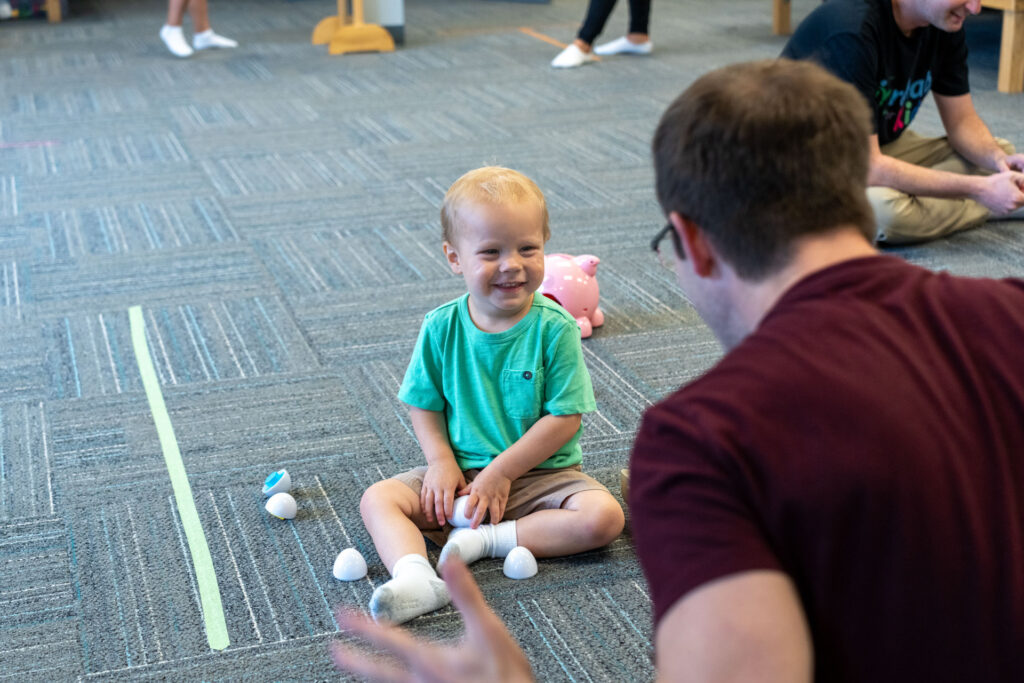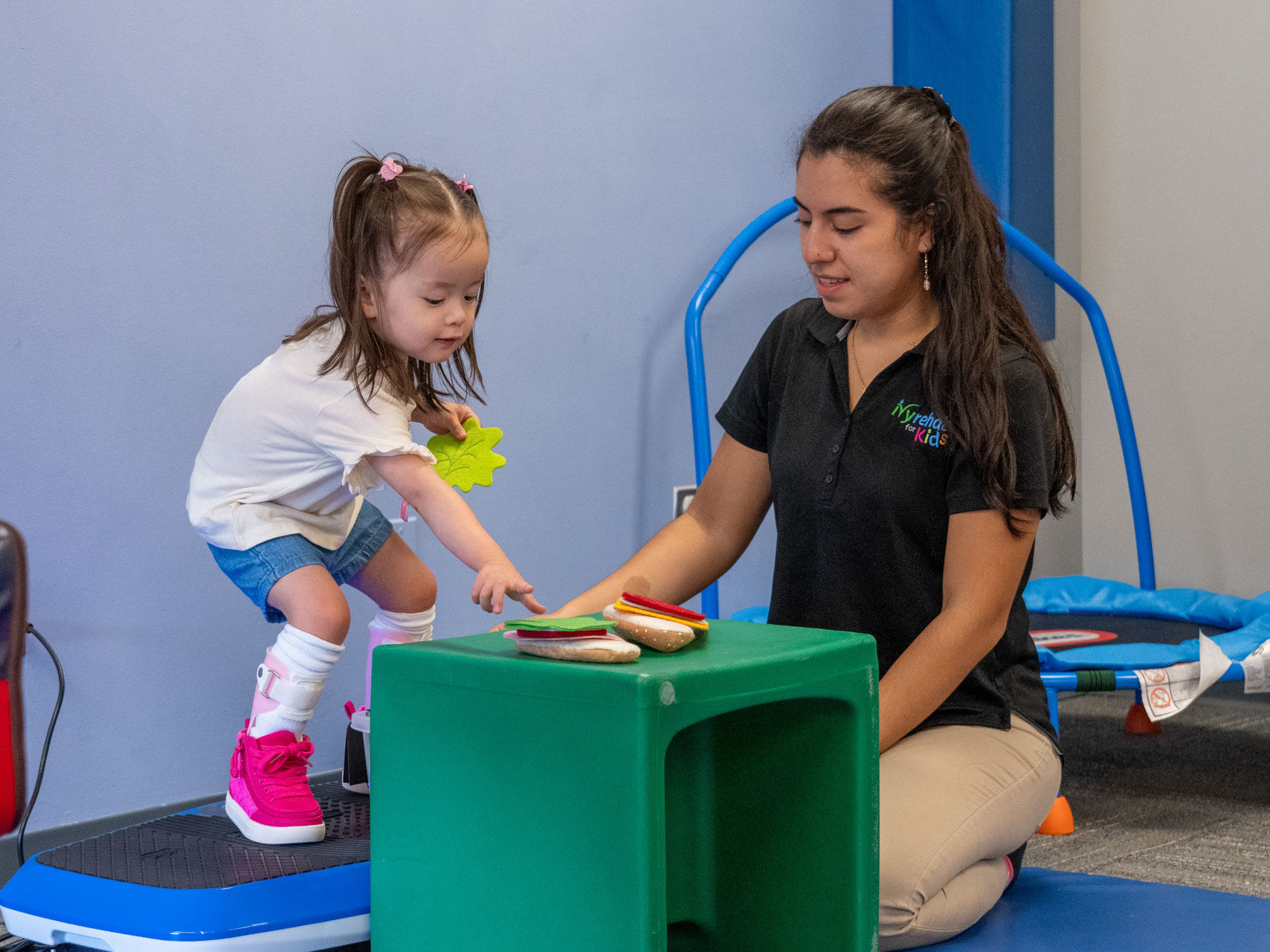
Early Intervention
Early intervention (EI) is a collection of services and supports provided to children from birth to three years that are designed to help families enhance their child’s development.
What is Early Intervention?
Early intervention (EI) is a collection of services and supports provided to children from birth to three years that are designed to help families enhance their child’s development. EI builds upon the natural learning that occurs in the first few years. Services are provided in the child’s home, daycare or other community settings. Early intervention is “routines based” which means all services support the child in being a part of their family and community. Request an appointment.
Ivy early interventionists, families and caregivers work together as a collaborative team to maximize the benefit of a personalized EI program for every child. EI services include physical, occupational, speech and feeding therapy, social work and nutrition services, as well as special instruction. Developmental expertise is also provided in the following areas:
- Cognitive development: thinking, learning, problem solving
- Speech and language development: talking, expressing oneself, comprehension
- Social/emotional development: interacting and building relationships with others
- Physical development: using hands, small and large muscles and moving around
- Self help: eating, dressing, toileting and sleeping


What Are the Benefits of Early Intervention?
There are many important benefits to starting Early Intervention services as soon as a developmental delay or disability is suspected. Studies show that addressing developmental needs early can significantly improve a child’s ability to learn and interact with their environment over time.
Some key benefits include:
- Promoting healthier child development across all domains
- Preventing or minimizing long-term developmental delays
- Offering support for parents and family members
- Enhancing school readiness and access to special education when needed
- Helping children reach key milestones in communication, mobility, and behavior
- Reducing the long-term need for more intensive or costly interventions
These supports services empower families with tools, strategies, and professional guidance to build on their child’s strengths and meet their evolving needs.
How Do I Find Out if My Child Is Eligible for Services?
To determine if your child is eligible for Early Intervention, you’ll need to begin with a formal screening or developmental evaluation. Here’s how to get started:
- Contact your state’s Early Intervention Program to schedule a free assessment
- Speak to your pediatrician or primary care provider about your concerns
- A service coordinator will guide you through the referral process
- If your child qualifies, an Individualized Family Service Plan (IFSP) will be created
Children may qualify for early intervention services if they are diagnosed with a developmental disability, have a developmental delay, or are at risk for delays due to medical or environmental factors.
The earlier you start, the better the outcomes. If you’re concerned about your child’s progress, don’t wait—reach out to your local Early Intervention system to learn how to receive support tailored to your family’s needs.
FAQs
How do I know if my child needs Early Intervention?
If you notice signs of developmental delays, such as difficulty with communication, mobility, or social interactions, it may be time to consider Early Intervention. Common signs include challenges with speech, movement, or engaging with others. If you’re concerned, it’s important to talk to your pediatrician who can help guide you through the process of a developmental evaluation to determine eligibility for services.
What age group does Early Intervention (EI) serve?
Early Intervention (EI) services are available for children from birth to three years old. These services are designed to support children’s development in various areas such as cognitive, speech and language, social/emotional, physical development, and self-help skills. The goal is to give children the best start in life and prepare them for future learning.
What happens during the Early Intervention evaluation process?
The evaluation process typically begins with a formal screening to assess your child’s developmental milestones. If necessary, a comprehensive developmental evaluation will be conducted to identify specific needs. If your child qualifies for services, an Individualized Family Service Plan (IFSP) will be developed, outlining tailored services and supports to address your child’s unique needs and promote their development.

Early Intervention Program Resources
Pennsylvania
Early Intervention
(800) 692-7288
Virginia
Infant Toddler Connection of Virginia
(800) 234-1448
Can I Request an Ivy Rehab for Kids Therapist?
Yes! Our Early Interventionists are highly trained physical, occupational and speech therapists, nutritionists, social workers and special instructors, and can be directly requested by parents and caregivers to provide EI services.
With decades of clinical and pediatric therapy experience across multiple counties and states, our pediatric team of specialists create supportive bonds for families and children.

Get Started
The first step in seeking Early Intervention services is for a parent or guardian to talk to their child’s health care provider and contact your state or territory’s early intervention program.

